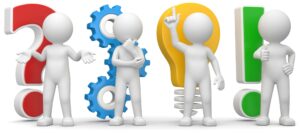Ethics is the branch of philosophy that deals with moral principles and how they apply to human conduct. Ethics is also the study of what makes an action right or wrong, good or bad, and how people can justify their moral judgments. Ethics, understood as the capacity to think critically about moral values and direct our actions in terms of such values [Churchill 1999], particularly when confronting a new unfamiliar situation or technology (e.g. AI). Ethics can be divided into two main areas: normative ethics and applied ethics.
Normative ethics is the theoretical part of ethics that develops and evaluates moral theories. Moral theories are general frameworks that provide guidelines for moral decision-making and action. Some of the major moral theories are utilitarianism, deontology, virtue ethics, and contractarianism.
Applied ethics is the practical part of ethics that applies moral theories to specific issues or cases. Applied ethics deals with controversial topics such as abortion, euthanasia, animal rights, environmental ethics, business ethics, and bioethics. Applied ethics aims to find solutions or guidelines for real-world ethical problems.
The Importance of Ethics
Ethics is important because it helps people to understand and evaluate their own and others’ actions, to resolve moral dilemmas, and to promote social justice and human rights. Ethics also helps people to develop their critical thinking, reasoning, and communication skills. Ethical frameworks can be used in a process for improvement of ethical performance.

Ethical Quandaries
Ethical frameworks are most helpful for individuals when they face ethical dilemmas or uncertainties about what to do in a given situation. Ethical frameworks can provide guidance, clarity, and consistency for ethical decision-making and action. They can also help individuals to justify and explain their ethical choices to themselves and others. Ethical frameworks can also help individuals to compare and evaluate different perspectives and arguments. However, ethical frameworks are not always sufficient or conclusive, and they may also have limitations or challenges. Therefore, individuals should also use their own judgment, intuition, and empathy when applying moral frameworks to ethical issue
Ethical frameworks are most helpful for organizations when they need to establish and maintain their values, goals, and responsibilities in relation to their stakeholders and society. Ethical frameworks can help organizations to align their actions with their mission and vision, and to enhance their reputation and trustworthiness. Ethical frameworks can also help organizations to prevent or resolve ethical conflicts or crises that may arise internally or externally. Moral frameworks can also help organizations to innovate and adapt to changing ethical expectations and standards. However, ethical frameworks are not always easy or straightforward to implement or follow, and they may also have trade-offs or risks. Therefore, organizations should also use their own leadership, culture, and engagement when applying ethical frameworks to specific situations.
References
[Churchill 1999] Churchill, L. R. (1999). Are we professionals? A critical look at the social role of bioethicists. Daedalus, 128(4), 253-274.
